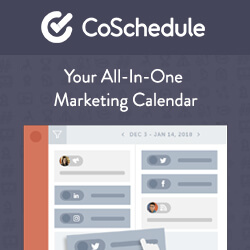 “This is a sponsored post by UnitedHealthcare. All thoughts and opinions are my own.”
“This is a sponsored post by UnitedHealthcare. All thoughts and opinions are my own.”
Having owned multiple family businesses over the last 70+ years, the first being our grocery store which opened in 1944, it’s almost amusing to think about how many times we worked through the original application and renewal processes of small business health insurance. Every year we were faced with answering the same question, “What would our employee healthcare package look like for the next year?” This process seemed to get more and more time consuming, not to mention the fact that each year the policy options kept getting more and more confusing.
Each of our companies had less than 50 employees so we didn’t have an officially trained HR department that could negotiate the best plans for our business and our employees. The entire process fell on my shoulders and I pretty much dreaded the last quarter of every year knowing I was getting ready to go through this process again.
And I wasn’t alone. The Business Journals’ SMB Insights polled small business owners and found that 63% of business report small business health insurance is a major concern due to cost and coverage issues.
Now, as a business consultant, I work with small business owners who are sometimes struggling to make ends meet. It seems like when things get tight the first thing they think about is how to cut back on employee costs and employer provided health insurance seems to always be part of the conversation.
Why You Must Have Small Business Health Insurance
From my own experience, I can give you three great reasons why all small businesses should provide their employees with healthcare.
1. Employee Retention. In our trucking company, I heard from new employees over and over again that they were leaving their last job because there was no health care provided. Healthcare is one of the most attractive employee benefits you can offer new employees and it will help you reduce employee turnover. Reduced turnover means a larger bottom line because we all know that hiring and training new employees is way costlier than keeping the ones we already have.
2. Increasing the Bottom Line. It may seem counter intuitive to think that spending money on group health insurance will increase your bottom line after all it is one of the most expensive employee benefits you have. However, if you look at the reduced employee turnover, the fact that healthy employees are much more productive and that happy employees take less sick days, it all begins to build the bottom line. And remember you can be creative. You don’t have to foot the bill for the entire program.
3. Hands Off Management. As a small business, when you purchase group health insurance from a reputable company such as UnitedHealthcare, except for collecting premiums you are almost completely out of the management of the daily activities. With online portals for both the employer and employee, making changes, filing claims and finding out what is going on with your policy is now so easy.
How Health Care Providers are Making it Easier for Small Business Owners
As the person who has spent a life-time completing piles of documents to get people registered for policies that I barely understood at the time, I was so excited when healthcare providers like UnitedHealthcare announced that we could shop for group health insurance online. Not only could I choose medical plans, submit employee applications and decide how much we were going to cover for our employees but I could checkout and actually purchase online. No more waiting on my insurance agent to run massive reports of options, worrying about choosing the wrong policy or hand writing hundreds of applications. It’s now easily done through the insurance company portal.
What I Love About UnitedHealthcare
There are five very specific things that I love about the way small business health insurance works with UnitedHealthcare.
1. They have created an online environment that is designed for small business owners just like you and me. It’s focused on small businesses that have between 2 and 50 employees. We have unique issues compared to companies in excess of 100 employees. And as we all know time is money and the UnitedHealthcare site is so user friendly, it only takes me about 20 minutes to go through everything.
2. There is no pressure to pick the right plan. I can review all of the plans that are available for my employees and offer all of the plans if I want. If I offer 6 or more plans, then the employee gets to choose what is the best plan for them with an online plan selection tool, instead of me trying to make one plan work for every employee.
3. There is easy access to support during the process. When it comes to small business health insurance one of the biggest issues I have seen over the years is confusion. When an employee feels overwhelmed or confused about the process they can speak with a coverage adviser or simply push a button on the site for more information.
4. I determine the max amount I will pay per employee. Anything they choose over that amount is their cost. That means that I have control over what I am spending and I am always clear on how much it is going to be.
5. My goal is to create an overall benefits package that includes more than just health insurance and UnitedHealthcare allows employers to offer additional specialty benefits like dental, vision, and life as part of your package
These are just a few of the biggest benefits I have found as an employer when working with the UnitedHealthcare process. Do yourself and your bottom line a favor and take a moment to check them out right now at SmallBusiness.UHC.com.





